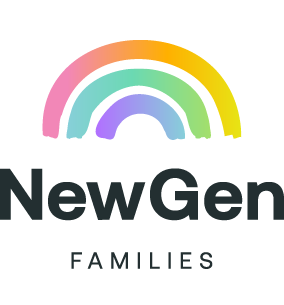What is the IVF Procedure? What are the Egg Donation Qualifications? How Does the Egg Donation Process Work?
As children, the process of conception is explained to us rather simply. Metaphorical stories, like the ‘birds and the bees,’ simplify pregnancy journies so they appear straightforward and uncomplicated. In our adolescence, cautionary tales of teenage pregnancies make it appear easier to conceive than to not.
We learn as adults, however, that becoming pregnant is not always easy. For many individuals, intervention from medical professionals, through In Vitro Fertilization (IVF) and Egg Donation, is required to make dreams of raising children come true.
Even though the virtues of Egg Donation are not recognized enough, the Egg Donation process is an equally meaningful method of starting a family. Of course, the process is only made possible through the help of Egg Donors. And while you may assume women only pursue Egg Donation for money, donating your eggs provides those with a life-changing solution to fertility struggles.
In this article, we dive into the Egg Donation process. Our team at NewGen Families will answer common questions about the IVF procedure and Egg Donation qualifications, setting the record straight for prospective Egg Donors across the globe.
Let’s go back to basics together and change how stories about conception are told! It’s time to explore the Egg Donation process.

What is a ‘Human Egg?’
The question may appear silly to some. However, understanding the inner workings of female reproduction is also the first step in understanding the Egg Donation process.
The human egg, also known as the ovum, is an essential cell for reproduction. During fertilization, sperm from a male meets the ovum of a female to form a zygote. If fertilization is successful, the zygote marks the beginning of one’s 280-day pregnancy journey (Oliver & Basit, 2023).
Contrary to popular belief, women are born with millions of eggs in their ovaries. Although this number decreases each menstrual cycle, females typically maintain around 300,000 – 500,000 eggs in their twenties and thirties. The short window in which an ovum can be fertilized is known as Ovulation and occurs halfway through a healthy cycle for 24 – 48 hours.
You may also wonder, ‘What exactly is the menstrual cycle?’ The menstrual cycle refers to the coordinated movement of human eggs from the ovary to the uterus. If the pregnancy is successful, this microscopic ball of cells will eventually become your newborn baby. This natural sequence of events, lasting approximately 28 days, is regulated by the release of hormones.

How does the Egg Donation Process Work?
Now that we have covered the Female Reproductory System – let’s delve into the ins and outs of Egg Donation! For Egg Donors, the Egg Donation Process involves the IVF procedure and Embryo Transfer.
In Vitro Fertilization (IVF) is a procedure that involves the fusion of human eggs with sperm outside the body. Interestingly, the Latin term in vitro directly translates to in-glass. In the case of IVF, the ‘glass’ in question is a test tube!
Similarly to the Egg Donation process, Egg Donors can break down the IVF procedure into two phases: Ovarian Stimulation and Egg Retrieval.
Ovarian stimulation is a carefully monitored process where the menstrual cycle of an Egg Donor is regulated using hormonal medications. Egg Donors will inject hormonal medications for two weeks to stimulate the ovaries before egg retrieval, maximizing the chances of success during the Egg Donation process (Gosden & Gibbons, 2003).
So, what hormones are actually involved in Ovarian Stimulation?
- Birth Control Pills interrupt the Egg Donor’s natural menstrual cycle to prepare the body for the IVF procedure.
- Gonadotrophin-releasing Hormone Agonists deactivate the ovaries’ natural egg production during the natural menstrual cycle.
- Gonadotrophins ‘re-activate’ the ovaries, inducing the ovulation of additional eggs for treatment.
- Human chorionic gonadotrophin (hCG) facilitates the maturation of eggs, ensuring they are ready for collection and Egg Donation.
(National Institutes for Health and Care Excellence, 2017)
Egg Retrieval surgery follows Ovarian Stimulation. During the short, non-invasive procedure, mature eggs are extracted from the ovaries and used for lab fertilization. The timing aligns with egg maturation due to the use of the hormonal medication listed above. Recovery is usually swift, with many Egg Donors resuming normal activities within a day or two!
It’s important to note that the specifics of the Egg Donation Process can vary depending on the clinic and the parties involved. The process outlined above provides a general overview. NewGen Families recommends you consult reputable fertility clinics for accurate and up-to-date information.
Are you intrigued by the experiences of Egg Retrieval from a four-time Egg Donor? Make sure to check out last week’s article!
What are Egg Donation Qualifications?
While our team at NewGen Families welcomes individuals from diverse backgrounds interested in donating their eggs, we also recognize that every medical procedure carries some risks, including those involved in the Egg Donation process.
In addition to genetic screening, our agency maintains stringent qualifications for Egg Donation to safeguard the well-being of our donors. These include, but are not limited to:
- Age: Egg Donors typically fall within a specific age range, often between 18 and 30 or 35 years old, to ensure the quality and viability of the donated eggs.
- Genetic and Family Health History: Egg Donors must provide a comprehensive family health history to assess the risk of genetic disorders or hereditary conditions.
- Drug and Alcohol Use: Egg Donors are required to refrain from drug and excessive alcohol use.
- Healthy BMI: Egg Donors should be in good overall health, without any significant medical conditions that could affect their ability to undergo the Egg Donation process or the health of the resulting eggs.
- Regular Menstrual Cycle: Egg Donors should have regular menstrual cycles and a healthy reproductive system.
At NewGen Families, the Egg Donation process begins with a complimentary consultation with one of our Case Managers. Your dedicated Case Manager will support you from the first consultation to the day the baby is born.
Conclusion
While the spotlight shines bright on IVF, the significance of Egg Donation remains underappreciated. Our team hopes this article has shown you how the Egg Donation process – powered by selfless Egg Donors, is not as mystical as one may think.
If you would like to offer a life-changing solution to fertility challenges felt by Intended Parents near and far, book a free consultation with one of our trusted and friendly team members today.
NewGen Families is always happy to answer any questions you may have about the Egg Donation process!






